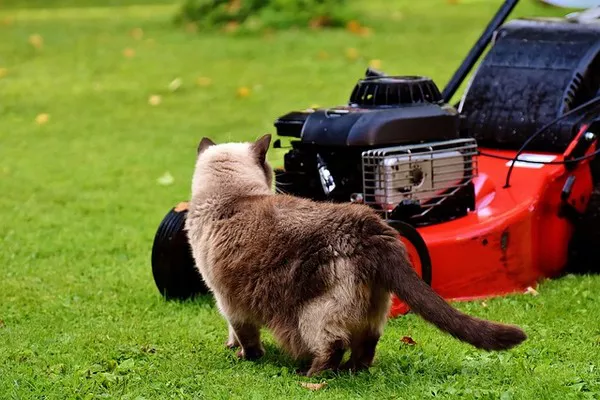Lawn mowers are indispensable tools for maintaining a well-manicured lawn. However, to keep them running smoothly and efficiently, selecting the appropriate fuel is essential. The choice of fuel can impact not only the performance and longevity of your mower but also its environmental footprint. In this article, we’ll explore the different types of fuel available for lawn mowers and provide guidance on selecting the most suitable option.
Gasoline: The Traditional Choice
Gasoline has long been the standard fuel for powering lawn mowers. It’s readily available at gas stations and is compatible with most mower engines. When choosing gasoline for your mower, it’s crucial to select the right octane rating. Most small engines, including those found in lawn mowers, operate best with regular unleaded gasoline with an octane rating of 87. Using a higher octane rating than recommended is unnecessary and can lead to increased emissions and engine deposits without providing any performance benefits.
Additionally, it’s essential to avoid using gasoline with ethanol content higher than 10% (E10) in your lawn mower. Ethanol can attract moisture, leading to corrosion and engine damage, especially in small engines that are not designed to handle higher ethanol blends. Look for fuel labeled as “E10” or “no more than 10% ethanol” to ensure compatibility with your mower.
Ethanol-Free Gasoline: A Premium Option
For those concerned about the potential negative effects of ethanol in gasoline, ethanol-free fuel, also known as E0, is a premium alternative. Ethanol-free gasoline is formulated without ethanol, making it less prone to moisture absorption and corrosion. While typically more expensive than E10 gasoline, E0 fuel can offer improved engine performance and longevity, particularly in older or high-performance lawn mower engines.
Ethanol-free gasoline is available at select gas stations and is often marketed as a high-quality fuel suitable for small engines, motorcycles, and other recreational vehicles. If you choose to use ethanol-free gasoline in your lawn mower, ensure that it meets the manufacturer’s specifications and recommendations for fuel octane rating and composition.
Two-Stroke Fuel: Special Considerations
Some lawn mowers, particularly older models and handheld equipment such as string trimmers and chainsaws, may require two-stroke fuel. Two-stroke engines rely on a mixture of gasoline and two-stroke oil for lubrication and combustion. Using the correct fuel-oil mixture ratio is crucial for optimal engine performance and longevity.
When mixing two-stroke fuel, always follow the manufacturer’s recommended ratio, typically expressed as a ratio of gasoline to oil (e.g., 50:1 or 40:1). Using too little oil can result in inadequate lubrication, leading to engine damage, while using too much oil can cause excessive smoke and carbon buildup. Pre-mixed two-stroke fuel is also available for convenience, although it tends to be more expensive than mixing your own.
Alternative Fuel Options
In recent years, alternative fuel options have emerged as environmentally friendly alternatives to traditional gasoline. Propane and natural gas are two such alternatives that offer reduced emissions and potentially lower operating costs compared to gasoline.
Propane-powered lawn mowers use a propane tank as a fuel source instead of gasoline. Propane burns cleaner than gasoline, producing fewer harmful emissions such as carbon monoxide and hydrocarbons. Additionally, propane is typically less expensive than gasoline and is not subject to the same price fluctuations. However, propane-powered mowers may require special equipment and refueling infrastructure, which can be limiting for some users.
Natural gas is another alternative fuel option for lawn mowers, although it is less common than propane. Natural gas is abundant, domestically produced, and burns cleaner than gasoline, making it an environmentally friendly choice. Like propane, natural gas requires specialized equipment and refueling infrastructure, which may not be readily available in all areas.
Electric Mowers: A Fuel-Free Option
For those seeking a fuel-free mowing solution, electric lawn mowers offer an environmentally friendly alternative to gasoline-powered mowers. Electric mowers are powered by rechargeable batteries or corded electric sources and produce zero emissions during operation. They are generally quieter and require less maintenance than gasoline mowers, making them an attractive option for environmentally conscious homeowners.
Battery-powered electric mowers offer the convenience of cordless operation and are suitable for small to medium-sized lawns. However, battery life and runtime may be limiting factors for larger properties, requiring multiple battery charges or spare batteries for extended use.
Corded electric mowers, on the other hand, provide continuous power from an electrical outlet but are limited by the length of the power cord. While corded mowers are best suited for smaller lawns, they offer consistent performance without the need for battery recharging.
See also Choosing the Right Lawn Mower: A Comprehensive Guide
Conclusion
Choosing the right fuel for your lawn mower is essential for optimal performance, longevity, and environmental impact. Gasoline remains the most widely used fuel for lawn mowers, but alternatives such as ethanol-free gasoline, propane, natural gas, and electric power offer viable options for those seeking cleaner, more sustainable alternatives.
When selecting fuel for your lawn mower, always refer to the manufacturer’s recommendations regarding fuel type, octane rating, and ethanol content. Proper maintenance, including regular fuel system cleaning and engine tune-ups, will help ensure reliable operation and extend the life of your mower regardless of the fuel type used. By making informed choices about fuel selection, you can enjoy a lush, well-maintained lawn while minimizing your environmental footprint.

